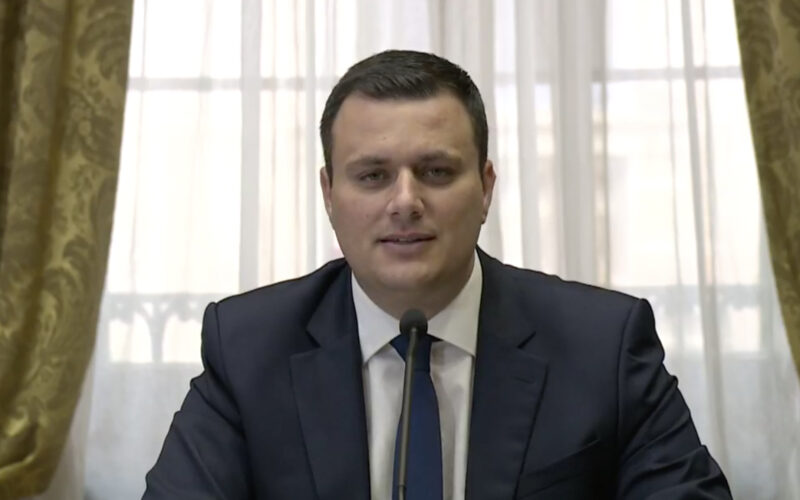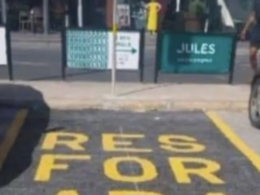Political accountability at stake as Camilleri’s portfolio faces growing scandals
Malta’s Home Affairs Minister, Byron Camilleri, is facing a barrage of criticism, with his position becoming increasingly difficult to defend. From law enforcement issues to mismanagement within correctional services, his leadership of the Home Affairs Ministry has come under intense scrutiny. Calls for his resignation are growing louder, spearheaded by the Opposition Nationalist Party (PN), which argues that Camilleri has lost control of his portfolio and no longer has the moral or political legitimacy to remain in office. As scandals continue to emerge across his departments, the question looms large: Is Camilleri still fit for purpose?
Scandals Piling Up
Camilleri’s portfolio is under siege, with major controversies arising from several departments within his remit. From police mismanagement to administrative chaos, critics argue that the situation has reached a crisis point. One particularly notable scandal that has added to the mounting pressure is the one involving LESA, the Local Enforcement System Agency, where allegations of rampant corruption have surfaced, implicating officers in illegalities ranging from ticket fixing to abuse of power. This scandal, like others under Camilleri’s purview, points to an apparent lack of oversight and control.
Meanwhile, the state of Malta’s correctional services is another major flashpoint. Over the past few months, public criticism has grown over reports of inmate mistreatment and questionable practices within prison facilities. The PN has seized on these reports, claiming that the minister is detached from the realities on the ground and incapable of enacting the necessary reforms. Despite Camilleri’s efforts to downplay the severity of these incidents and claim that reform is underway, the public remains unimpressed.
The LESA scandal, in particular, has drawn significant attention from the Opposition, with PN leader Bernard Grech stating that Camilleri’s inability to control even basic law enforcement mechanisms highlights his fundamental failure in leadership. The scandal has not only embarrassed the government but also raised serious questions about the integrity of Malta’s law enforcement apparatus under his stewardship.
The Nationalist Party’s Call for Resignation
Leading the charge in demanding Camilleri’s resignation is the PN, whose members have been increasingly vocal in their criticism of the minister. In a press statement issued today, the PN argued that Camilleri’s inability to rein in the mounting scandals under his leadership is evidence that he is no longer fit to serve. The party has also claimed that his continued presence in the Cabinet undermines the government’s credibility and erodes public trust in Malta’s institutions.
PN members have not minced their words. In a recent address, the party’s spokesperson on home affairs called Camilleri’s position “untenable,” stating that the country cannot afford to have a minister who has repeatedly shown no control over the very departments he is responsible for. According to the PN, Camilleri’s failures in handling the LESA scandal and other controversies within his portfolio have severely damaged the functioning of critical public institutions.
Despite these strong calls for his resignation, Camilleri remains defiant, insisting that he “does not fear scrutiny” and that his record speaks for itself. But as more scandals emerge, this defensive posture is wearing thin.
The Question of Ministerial Accountability
At the heart of this political storm is the principle of ministerial responsibility. In democratic systems, ministers are expected to take full accountability for the performance and management of their departments, even when they are not personally implicated in wrongdoing. This principle has been the backbone of parliamentary democracy for decades, ensuring that those in power are held accountable when the institutions they oversee fail.
In many other jurisdictions, ministers in similar positions have resigned or been removed from office for less. Take, for instance, Gavin Williamson, the former Secretary of State for Education in the UK, who was dismissed in 2021 following a series of blunders, most notably the mishandling of exam results during the COVID-19 pandemic. Despite not being directly involved in misconduct, Williamson’s failures in managing the department led to his ousting .
Another example is Estelle Morris, also a former UK Secretary of State for Education, who resigned voluntarily in 2002 after acknowledging that she was “not up to the job.” Morris stepped down due to a series of administrative failures, setting a precedent for ministerial accountability when competence is in question, even in the absence of personal scandal.
By contrast, Camilleri’s refusal to step down despite widespread dysfunction within his departments raises concerns about the current state of political accountability in Malta. His position, many argue, is becoming increasingly difficult to justify, particularly in light of the major scandals emerging from his ministry, including the LESA corruption case and the ongoing crisis in Malta’s correctional facilities.
Is Camilleri Fit for Purpose?
 As the Nationalist Party continues to pile on the pressure, Byron Camilleri’s refusal to resign is being interpreted by many as a blatant disregard for political accountability. Critics argue that Camilleri’s leadership has become synonymous with dysfunction and that his remaining in power reflects poorly not only on him but on the government as a whole.
As the Nationalist Party continues to pile on the pressure, Byron Camilleri’s refusal to resign is being interpreted by many as a blatant disregard for political accountability. Critics argue that Camilleri’s leadership has become synonymous with dysfunction and that his remaining in power reflects poorly not only on him but on the government as a whole.
Camilleri’s defenders point to his efforts to implement reforms, but these claims are overshadowed by the sheer number of scandals that have come to light during his tenure. The LESA scandal, in particular, has drawn intense scrutiny, as it points to fundamental failures in enforcing the law. The fact that the agency tasked with maintaining public order has been embroiled in corruption allegations reflects a broader issue within Camilleri’s ministry.
In comparison to the actions of ministers in other European democracies, Camilleri’s continued presence in office is particularly questionable. While ministers like Gavin Williamson or Estelle Morris stepped down when their departments faced failures, Camilleri has resisted such calls, suggesting a troubling lack of accountability at the highest levels of government.
Camilleri’s inability to manage his portfolio effectively has led to significant reputational damage for the government and eroded public trust in Malta’s institutions. If prime minister Abela continues to support Camilleri, it will only deepen the perception that political accountability is absent in his government.








